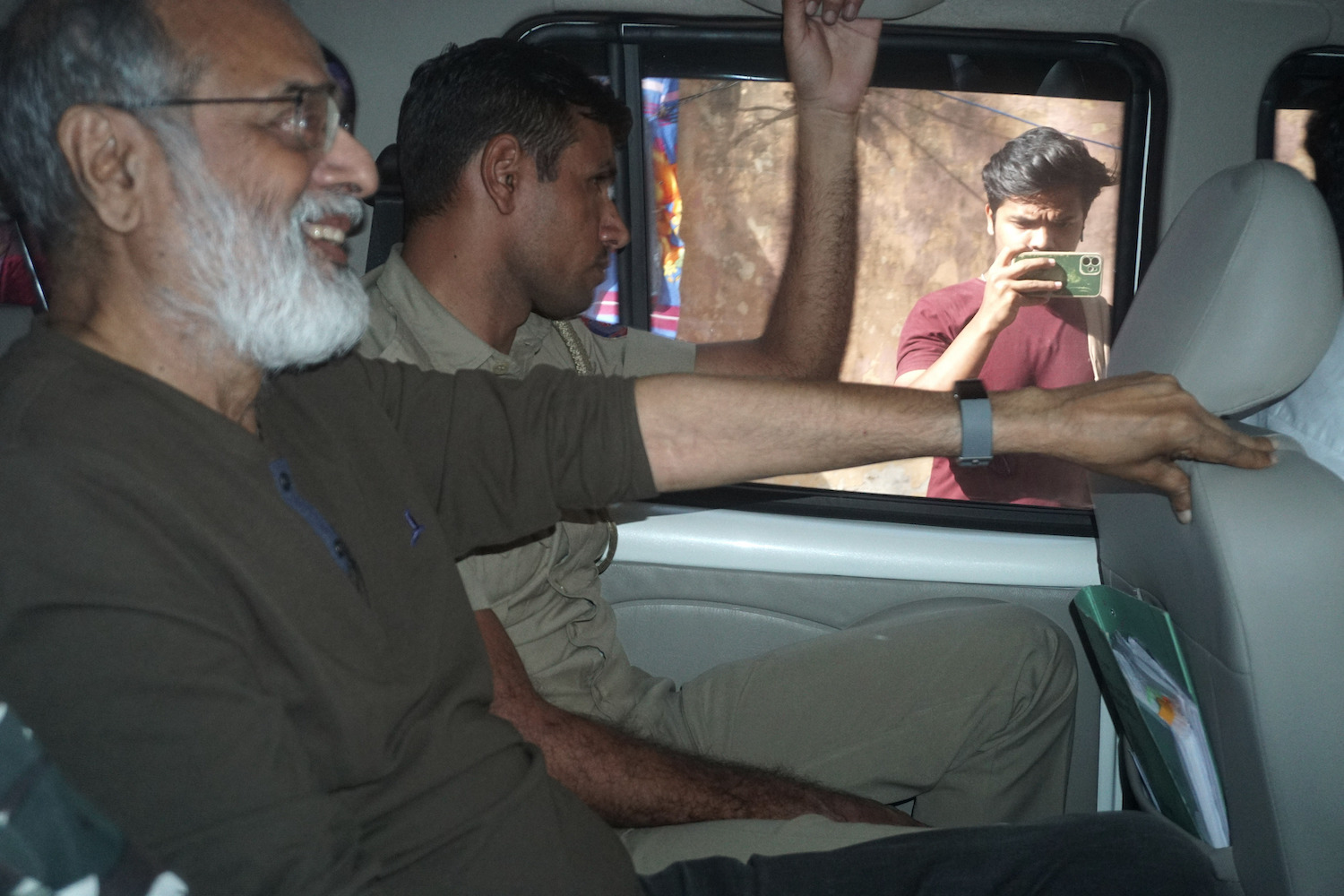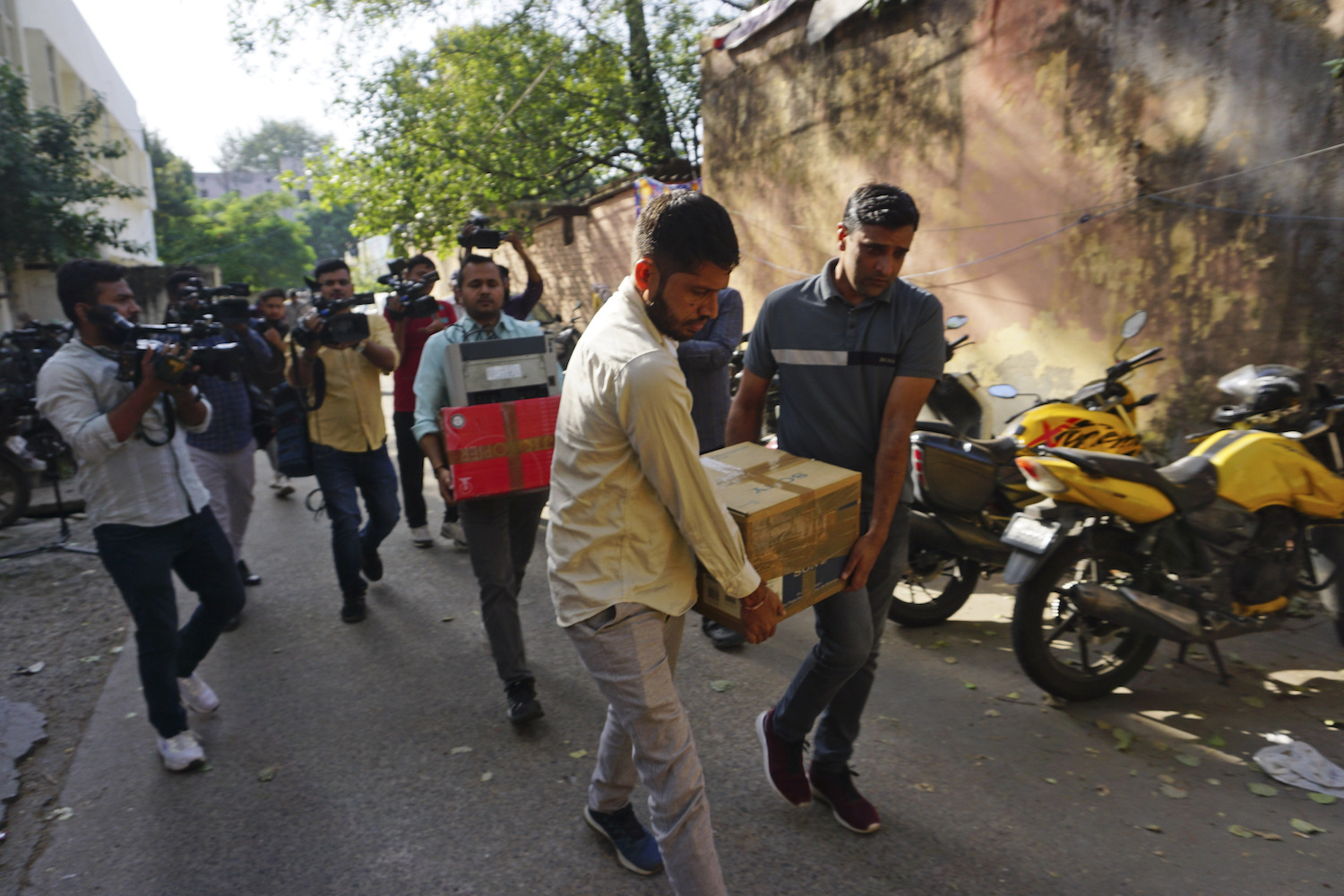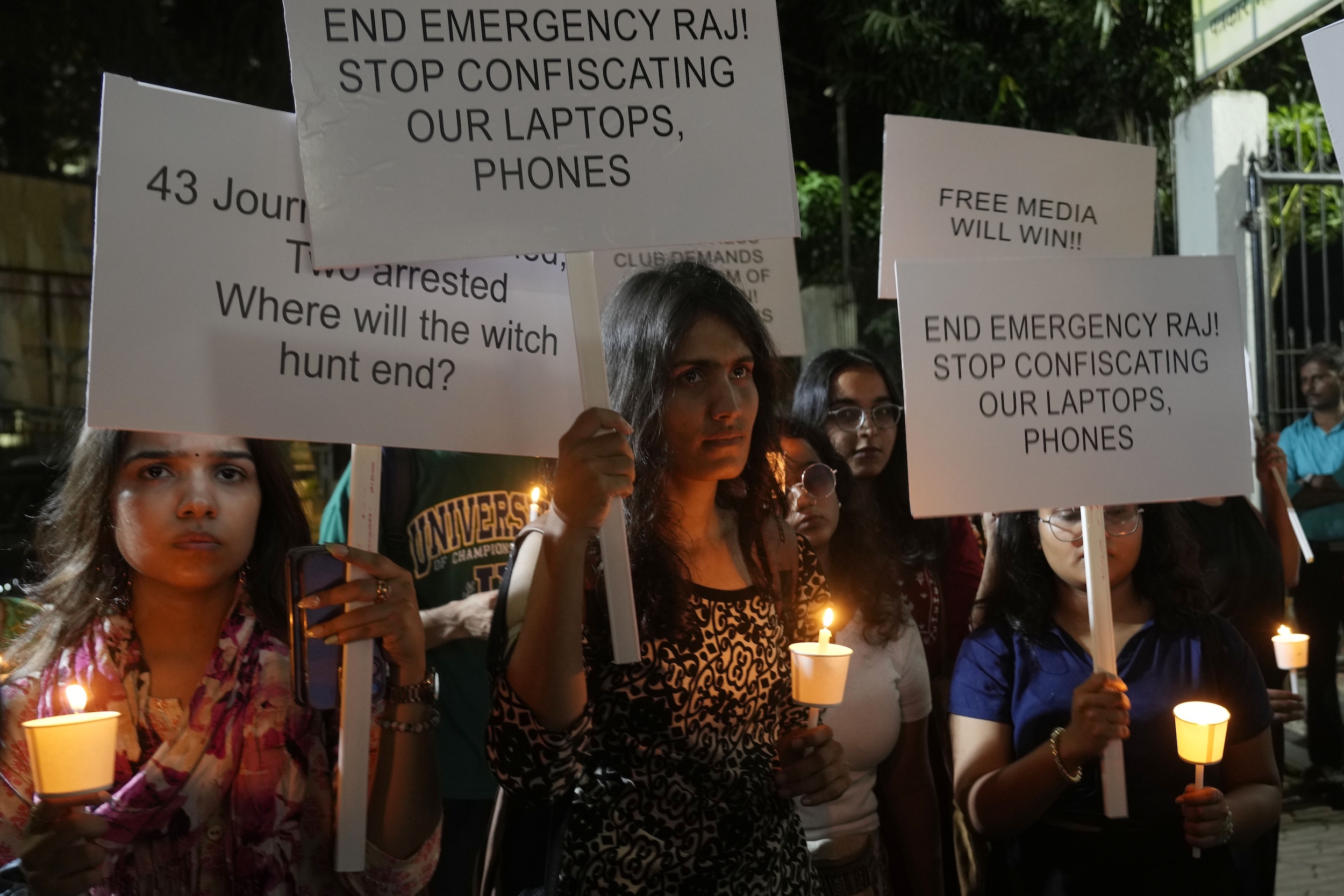This week’s raid on the offices and homes of NewsClick employees is the latest in a string of attacks on independent news outlets critical of the Indian government
“They came at 6:30 in the morning. We were fully awake.” The speaker is an editor at the popular Indian online news outlet, NewsClick, whose offices were raided by government officials earlier this week.
“There were around eight men who asked me only about our coverage on the farmers’ protests, COVID-19 and the Delhi riots,” he explains.
NewsClick is an independent newsroom which has been critical of the government of India. It was raided by officers of the Enforcement Directorate, a government agency which investigates financial frauds, on Tuesday early morning.
The raids ended with the arrest of NewsClick’s founder, Prabir Purkayastha, and administration head, Amit Chakraborty, on Tuesday evening, under the Unlawful Activities Prevention Act (UAPA).
The editor who spoke to Al Jazeera Journalism Review asked to remain anonymous. He says: “These raids are very unusual because this time they did not come to haunt [just] the editors or the founders of the company but also the interns, freshers, contributors and even freelancers.”
Electronic devices including mobiles and laptops of almost every journalist associated with NewsClick were seized and the offices were closed.

NewsClick has been on the radar since August 2023, when a New York Times article made an allegation that it was funded by American tech mogul Neville Roy Singham and was involved in the spreading of Chinese propaganda. The Times said Roy Singham had “sprinkled its coverage with Chinese government talking points”. NewsClick denied these allegations and said it would defend itself in court.
Days after the report was published in the Times - on August 17 - the Indian government registered a case against NewsClick under the Unlawful Activities Prevention Act.
A female journalist associated with NewsClick, who also did not want to be named, says she was raided by officers who visited her home in New Delhi. She claims they did not show her a complaint copy or search orders.
“They simply entered my rented room, asked me some questions and not one of them was related to Chinese funding. They took my phone, laptop and also old mobile phones,” she says.
“I now fear that my landlord might kick me out of the house as no one wants to get entangled in legal problems.”
In a statement, NewsClick said: “We strongly condemn these actions of a Government that refuses to respect journalistic independence, and treats criticism as sedition or ‘anti-national’ propaganda.
“NewsClick has been targeted by a series of actions by various agencies of the Government of India since 2021. Its offices and residences of officials have been raided by the Enforcement Directorate, the Economic Offences Wing of Delhi Police and the Income Tax Department.
“All devices, laptops, gadgets, phones, etc. have been seized in the past. All emails and communications have been analysed under the microscope. All bank statements, invoices, expenses incurred and sources of funds received by NewsClick in the last several years have been scrutinised by different agencies of the Government from time to time. Various directors and other related persons have spent countless hours on several occasions being interrogated by these government agencies.
“Yet, in the last two plus years, the Enforcement Directorate has not been able to file a complaint accusing NewsClick of money laundering. The Economic Offences Wing of Delhi Police has not been able to file a charge sheet against NewsClick for offences under the Indian Penal Code. The Income Tax Department has not been able to defend its actions before the Courts of law.”

‘An act of sheer harassment and intimidation’
The Committee to Protect Journalists has strongly condemned the action.
“The arrest of NewsClick editor Prabir Purkayastha and the raids on NewsClick and the homes of at least 12 of its former and current journalists are an act of sheer harassment and intimidation,” said Beh Lih Yi, CPJ’s Asia programme coordinator in Frankfurt, Germany. “This is the latest attack on press freedom in India. We urge the Indian government to immediately cease these actions as journalists must be allowed to work without fear of intimidation or reprisal.”
In February this year, law enforcement agencies raided the BBC office in India following the broadcast of a documentary critical of Indian Prime Minister Narendra Modi. News outlets like The Quint and Dainik Bhaskar have also faced raids following coverage critical of the government.
The Press Club of India expressed its solidarity with NewsClick. “The Press Club of India is deeply concerned about the multiple raids conducted on the houses of journalists and writers associated with NewsClick. We are monitoring the developments and will be releasing a detailed statement,” it said.
A journalist who has worked with NewsClick in the past says she is scared and feels traumatised.
“Earlier, the raids or questioning were limited to the founders and editors but this time they have come to question former journalists and freelancers as well. I am scared and waiting for my turn. There is uncertainty about whether or not I should be worried, what should be my next course of action. I am covering the cricket world cup but in the back of my mind I am worried that my laptop or phone might get seized by the authorities and then how will I work?”
India stands at 161 out of 180 countries in the world press freedom rankings compiled by Reporters Without Borders. A protest march by journalists took place in New Delhi on Wednesday evening.
“We are not going to stop doing journalism,” says the editor who spoke to us. “We are not intimidated by these actions. We are trying to get in touch with our team so that we can continue putting important stories on our website. Our office and computer have been sealed but this will not stop us.”












































